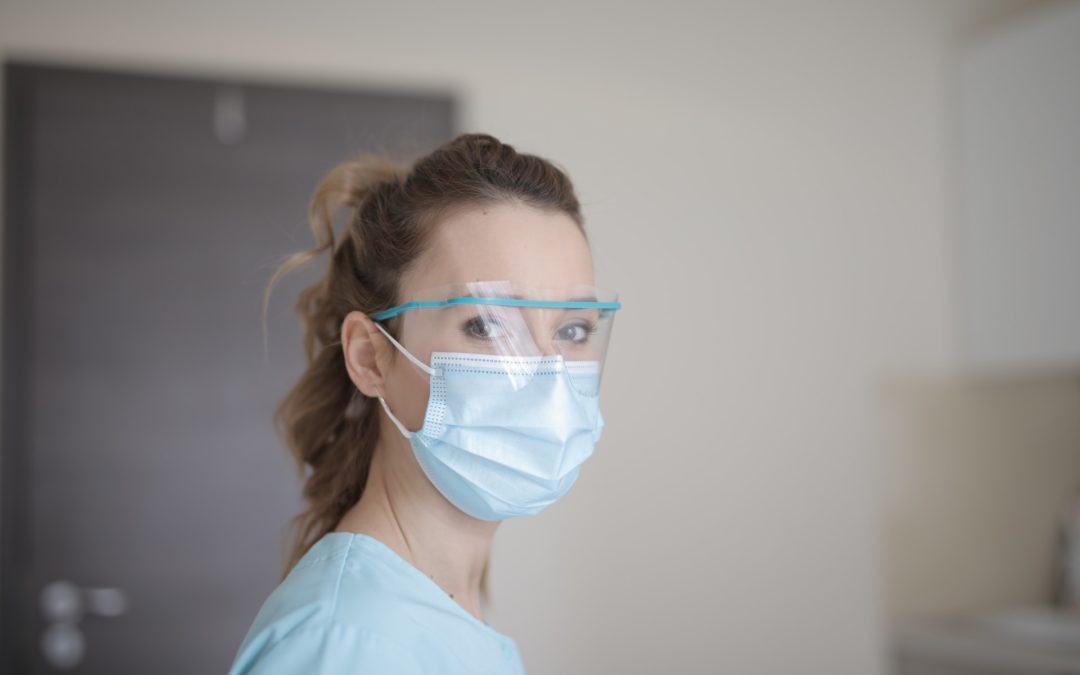You’ve no doubt seen the memes.
Wonder Woman, Batman, Captain America, Black Panther, and the rest of the superhero cast bowing to women and men wearing scrubs and a different sort of mask: heroes in the Age of Corona. Certainly, that is what they are. But they are also human. And unlike those heroes protecting the Marvel universe, their humanity places them at risk—not only of contracting COVID-19 but of suffering long-term mental health consequences as a result of their bravery.
Post-traumatic stress disorder (PTSD) is a mental health condition provoked by an extreme and acutely stressful event that causes flashbacks, nightmares, and severe anxiety. The scenes described by healthcare professionals on Intensive Care Units (ICU) across the world trying to cope with COVID-19 are precisely the sort that can trigger PTSD. Dr. Michael Duffy, psychotherapist and trauma specialist, warns that for “healthcare workers on the front line of this pandemic, the psychological effects will, in some ways, resemble the aftermath of a single large-scale event like the Omagh bomb.”
Protecting Frontline Workers from PTSD
As with so many ailments, the best treatment for PTSD is prevention or, at the least, harm reduction. For healthcare workers attempting to keep overwhelmed ICUs afloat, this means access to adequate personal protective equipment (PPE), competent and trustworthy leadership, and a safe place to return to after work.
The Critical Importance of Self-Care
Second, only to safety in mitigating the risk of PTSD is self-care. This means prioritizing healthy eating, exercise, good sleep, and staying connected to loved ones. Only if a person is well-cared for, themselves, can they hope to care well for others.
Dr. Ciara Mulholland, regional director of Northern Ireland’s Regional Trauma Network explains that feelings of anger, fear, guilt, anxiety, and helplessness are all normal in these times. Preparing for these emotions helps and one of the most effective ways to do this is to ensure we are at our best when they bubble up.
Coping with PTSD
Not all frontline healthcare workers will come through the COVID-19 pandemic with lasting mental health afflictions but those that do need to know there is no shame in seeking help.
A variety of research-proven treatments exist for PTSD. It is important that you speak to a mental health professional when trying to determine which option might work best for you. Talk therapy and medication provide effective, evidence-based treatment for PTSD. Cognitive-behavioral therapy, a derivative of talk therapy, has been proven to be especially promising.
Frontline Workers are Not the Only Ones at Risk
Patients with life-threatening cases of COVID-19 are also at risk of experiencing PTSD. Dr. Amy Bellinghausen, a pulmonary and critical care fellow at the University of California, San Diego, explains that delirium driven by fever or the sedation needed for patients on ICU ventilators can lead patients to confuse life-saving efforts with danger. The associated stress can be so severe that survivors may struggle with PTSD or ICU-syndrome for months or years afterward.
The Takeaway
COVID-19 will leave a lasting scar long after the pandemic has receded. Those most directly impacted by the virus are at the highest risk. In the coming months and years, it is critical that infrastructure is put in place to address these secondary effects. Meanwhile, the next time you share a meme depicting healthcare workers as the heroes they are, remember that they are also human and need all of our support now and in the future.
Contact Vitalitas Denver
Vitalitas Denver operates some of Colorado’s leading ketamine treatment centers, with clinics located in the Denver and Boulder/Fort Collins areas. If you are suffering from depression, anxiety, PTSD or another mental health disorder—if you have tried everything, and nothing has worked—please contact us to learn more about ketamine infusions for the treatment of depression and anxiety.


